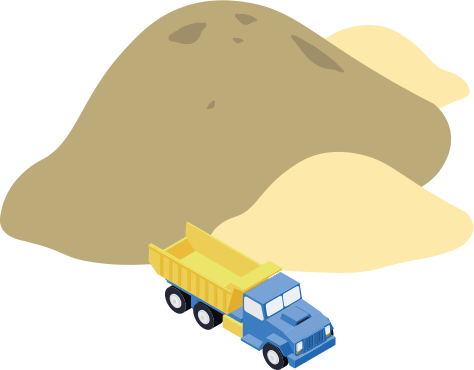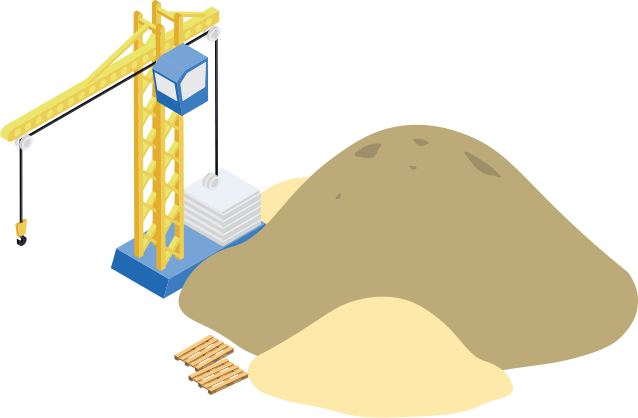Just to cover the basics, “URL” stands for “Uniform Resource Locator.” Like google.com. Also called a domain name, or website address.
Most basically, it’s how the internet knows where to find a site. I’m going to write a whole blog on how the internet works, so we’ll skip that for now.
But, almost since the internet’s beginning, URLs have meant a great deal more than just “how the internet knows where to find a site.” Otherwise all our URLs would be like “513d3.com.” Meaningless.
There’s a fair amount to know about how to pick a URL. Let me cover the most important data on that.
BUT IS IT AVAILABLE?
It is one URL, one website. So once someone has a URL, it isn’t available, and no matter how perfect it would be, if it is already taken, you’re out of luck.
The internet has been around for a while now, and URLs are worldwide. You can’t have the same URL in Pakistan and Brazil, each for different websites. So you are competing against over 7 billion people. If you are just getting into the game, you are like 10 or 30 years late to the table.
By now, tens of millions of URLs have been taken.
Do not despair. I am continually amazed by the excellent URLs people find available for their businesses.
So that is the first rule. Keep looking until you find a good one. They are out there.
By the way, how do you know if a URL is available? Typing a URL into your address bar won’t cut it, as someone may have taken it but just not put up a website, at least yet.
TWO TYPES OF URLS.
There are two types of URLs, and probably the first thing is to decide which type you want.
One type is based on your company or product name. Microsoft.com, IRS.gov.
The second type is descriptive. Searchenginemonitor.com, tampapoolbuilders.com
Which is better? There isn’t an “always right” answer. If your company name is unknown, using the company name in the URL won’t help get the website known or found. A descriptive name starts to tell people who you are or what your product does. But it won’t really build a brand. The URLs you remember are mostly names of companies. Many of the names didn’t mean anything to anyone until the company got big – Google.com, Amazon.com and many others.
SHORTER IS BETTER
A basic rule of URL picking. Shorter is better than longer.Why? It is easier to remember, and it’s harder to make a mistake.
You ever try to type in a URL like fortstocktonnaturepreservehikinggroup.com? Extra points if you get it right the first time.
Of course by now, an awful lot of short URLs are long gone. And length interacts with the next rule.
EASY TO SPELL IS BETTER
For the same reason, ease of spelling is a plus. Being shorter makes a URL easy to spell. Regardless of length, if your URL is made up of one or more real words, that helps. It helps if the word or words are ones people usually spell correctly.
You want to use the word “occasional” in your website address? Without spell checker, I would NEVER spell that word correctly. And spell check doesn’t work in your address bar (though you will get autocomplete suggestions).
So, the cute trick you see in company names, where words are deliberately misspelled, is a problem. “Precizion” “Byzfunder” – going to be a problem.
Some letter combinations create a spelling problem all by themselves. “Businesssharpies.com” may be an accurate description, and they are common words spelled as they appear in the dictionary. It also has three letters “s” in a row in the middle of it.
BAD SOUNDS AND SPELLS
Sometimes everything is right with a URL, but it just spells out – or sounds out – a naughty word or one with very undesirable connotations. If your organization is the Portland Ordinary Orchid Producers, poop.com would not be a good choice of URL.
“TLD”S AND DASHES
Two other aspects of picking a URL are important. One trick to get a nice short URL is to use a dash (the only allowed character other than numbers and letters). It may seem like a good idea if the perfect URL is taken, just stick a dash in the middle and register barn-stompers.com. Except you are going to end up with zillions of people going to barnstompers.com, who are then going to wonder why they aren’t finding your site.
Sometimes it is still the best choice, but not often.
A “TLD” or “Top Level Domain” refers to the letters after the “.” in a website address. Once there was only .com, .org, and .net, and they were supposed to mean something, but that is long since passed and anyone can register any of those. Usually you want .com because that is the default in people’s minds, and if your URL is “stockpitchers.org” you are going to get lots of people going to stockpitchers.com by mistake.
For many years there have been TLDs for every country. Unless that is where your company is located, a “.ca” URL (for Canada) is usually a very bad idea, though this is used all the time to get very short versions of URL for purposes of saving space on Twitter and elsewhere (so-called URL shorteners.” Google itself often uses goog.gl for links.
There are also several special purpose TLDs that you usually have to specifically qualify to use. Like .gov for government agencies, and .edu for accredited schools.
But now there are a TON of new LDs, like .biz, .info and many more. The same reasoning applies to why these are usually a bad idea, but I won’t categorically rule them out.
BUT. You really really want to go for a .com address in almost all cases, if you can find one fairly decent.
DOMAIN STATUS
I wanted to add a bit more about buying a domain. Actually you are only renting a URL, for a year or more at a time with the right to renew it indefinitely. There are several possible statuses for a URL based on the system.
- If someone has got a domain, it is “registered” (to them or by them).
- A URL may never have been registered, or it may have been registered in the past, but the registrant let it lapse (failed to renew it). Either way, that domain is available to be registered by anyone, first come, first serve, unless it has a restricted TLD as described above.
- A domain may be registered, but available for purchase. If a domain is unregistered, prices are usually low (perhaps $10 or $20 per year. Many people and companies buy domains and hold on to them, hoping someone will be willing to pay a high price for the perfect URL. You’ll see this searching on GoDaddy for a URL, a message “this URL is available for $2,499.” Some domains (“sex.com”) have gone for millions of dollars.
- There are a few other oddball statuses. For example, if you let a domain expire, there is a period of time after which you can no longer renew it, but neither can anyone else register it. That can get very inconvenient as your website goes down and you can’t get it back up for maybe weeks, if at all.
CAN IT BE TAKEN AWAY?
What if your ex- registers your name as a URL and puts up a website to tell the world about your sins? Can you make them turn over the URL to you?
Under the rules governing the internet, sometimes this is possible, but usually involving famous names. If you managed to register elvispresley.com and refused to sell it to his estate, don’t expect to hang onto it.
But those situations are rare.
HOW TO REGISTER A DOMAIN
Finally, a simple but important question. Where do you go to register a domain?
GoDaddy.
They are the world’s largest, their prices are modest, and everything works on their site. No reason to go anywhere else.
There are thousands of licensed domain registrars. Some of them are expensive for no good reason (hello Network Solutions). Some of them charge extra for things usually included for free (hello Network Solutions). Some have lousy user-unfriendly websites.
DON’T register your site through anyone other than a licensed registrar. Using a reseller simply adds another, completely unnecessary layer of complexity, which can lead to problems down the line. That particularly applies to your website developer. There is nothing your web developer can add to this service, except helping you pick a good URL and advising on things like setting up auto-renew (a good idea). We do that for free for people, and no way is it worth $100 a year. And what if you want to fire the guy? Often these resellers actually set it up so they are the ones who own your URL. BAD idea.








